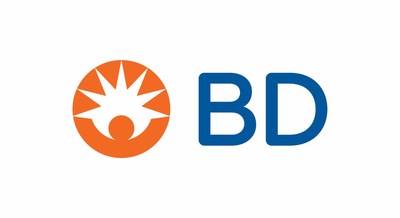New Diagnostic Test Helps Hospitals More Quickly Identify and Treat Emerging Antibiotic-Resistant Bacteria
Fully-automated BD Phoenix™ CPO Detect Test Receives U.S. FDA Clearance
FRANKLIN LAKES, N.J., Nov. 13, 2018 /PRNewswire/ -- BD (Becton, Dickinson and Company) (NYSE: BDX), a leading global medical technology company, today announced the U.S. Food and Drug Administration 510(k) clearance of the BD Phoenix™ CPO detect test, which will allow hospitals to identify infections caused by carbapenemase-producing organisms (CPOs). The test may help hospitals contain the spread of antimicrobial resistance (AMR) by shortening the time it takes to detect CPOs, thereby enabling the earlier implementation of infection control procedures and the initiation of appropriate antibiotic therapies designed for treating these infections.

According to the Centers for Disease Control and Prevention (CDC), CPOs, specifically Carbapenem-resistant Enterobacteriaceae (CRE), represent a prominent AMR threat to public health because these dangerous microbes are often resistant to nearly all available antibiotics.1 These organisms are also on the World Health Organization (WHO) priority pathogen list as critical threats to public health.2 Reported rates of mortality associated with certain CPO infections vary widely, from 22 percent to 72 percent.3 Once identified, rapid implementation of infection prevention measures are needed to prevent further transmission of these organisms and for appropriate patient management".4-5
"The BD Phoenix™ CPO detect test is a completely new type of phenotypic test, and its range of automation and diagnostic capabilities is unmatched by all other currently marketed tests," said Kenneth S. Thomson, PhD, FIDSA, FAAM, FASM clinical professor of Pathology and Laboratory Medicine, University of Louisville School of Medicine. "It represents a significant advance in meeting an important clinical need for rapid detection of CPOs."
The BD Phoenix™ CPO detect test, currently available in two configurations as part of the BD Phoenix™ automated microbiology system, detects CPOs and depending on configuration, can provide the Ambler classification of the enzyme produced to help inform clinicians in appropriate therapy selection. The test is included on BD Phoenix™ gram-negative panels, allowing hospital labs to offer it as part of routine antibiotic susceptibility testing.
The test streamlines laboratory workflow by routine, concurrent testing of CPO and susceptibility to one panel. Conventional phenotypic methods for CPO detection can take up to 96 hours, whereas the BD Phoenix™ CPO detect test can accurately detect CPOs in under 36 hours.
"The BD Phoenix™ CPO detect test gives laboratories an accurate and cost-effective method to rapidly identify CPOs and support patient management," said Steve Conly, vice president, general manager of Microbiology for BD Diagnostic Systems. "Along with the BD Phoenix™ M50 instrument, this automated first-to-market, phenotypic test to detect CPOs, using the BD Phoenix™ system, expands the BD portfolio of solutions for identification and antimicrobial susceptibility testing and is another example of the company's commitment to providing solutions that help address the global burden of AMR."
All versions of the BD Phoenix™ CPO detect test will be available beginning in January 2019. Visit bd.com/ds for more information.
About the BD Phoenix™ System
The BD Phoenix™ automated microbiology system provides accurate and reliable identification and antibiotic susceptibility testing of microbial organisms. Using BD Phoenix™ products, laboratories can identify organisms and detect emerging antimicrobial resistance, as well as improve communication with clinicians to help impact both patient management and antibiotic stewardship.
About BD
BD is one of the largest global medical technology companies in the world and is advancing the world of health by improving medical discovery, diagnostics and the delivery of care. The company supports the heroes on the frontlines of healthcare by developing innovative technology, services and solutions that help advance both clinical therapy for patients and clinical process for healthcare providers. BD and its 65,000 employees have a passion and commitment to help enhance the safety and efficiency of clinicians' care delivery process, enable laboratory scientists to accurately detect disease and advance researchers' capabilities to develop the next generation of diagnostics and therapeutics. BD has a presence in virtually every country and partners with organizations around the world to address some of the most challenging global health issues. By working in close collaboration with customers, BD can help enhance outcomes, lower costs, increase efficiencies, improve safety and expand access to healthcare. In 2017, BD welcomed C. R. Bard and its products into the BD family. For more information on BD, please visit bd.com.
1 Centers for Disease Control and Prevention (CDC). Antibiotic Resistance Threats in the United States, 2013. Atlanta: CDC; 2013.
2 World Health Organization. Global Priority List of Antibiotic-Resistant Bacteria to Guide Research, Discovery, and Development of New Antibiotics. February 2017. http://www.who.int/medicines/publications/WHO-PPL-Short_Summary_25Feb-ET_NM_WHO.pdf?ua=1. Accessed March 20, 2017.
3 Tumbarella, M. et al. (2015) J Antimicrob Chemother 70: 2133-2143
4 Aguirre-Quiñonero, A., & Martínez-Martínez, L. (2017). Non-molecular detection of carbapenemases in Enterobacteriaceae clinical isolates. Journal of Infection and Chemotherapy 23: 1-11.
5 Pancotto, L.R. et al. (2018) Performance of rapid tests for carbapenemase detection among Brazilian Enterobacteriaceae isolates. BJM 49: 914-918.
|
Contacts: |
|
|
Gwen Gordon |
Monique N. Dolecki |
|
BD Public Relations |
BD Investor Relations |
|
858.812.3724 |
201.847.5378 |
![]() View original content to download multimedia:http://www.prnewswire.com/news-releases/new-diagnostic-test-helps-hospitals-more-quickly-identify-and-treat-emerging-antibiotic-resistant-bacteria-300748696.html
View original content to download multimedia:http://www.prnewswire.com/news-releases/new-diagnostic-test-helps-hospitals-more-quickly-identify-and-treat-emerging-antibiotic-resistant-bacteria-300748696.html
SOURCE BD (Becton, Dickinson and Company)
Released November 13, 2018
